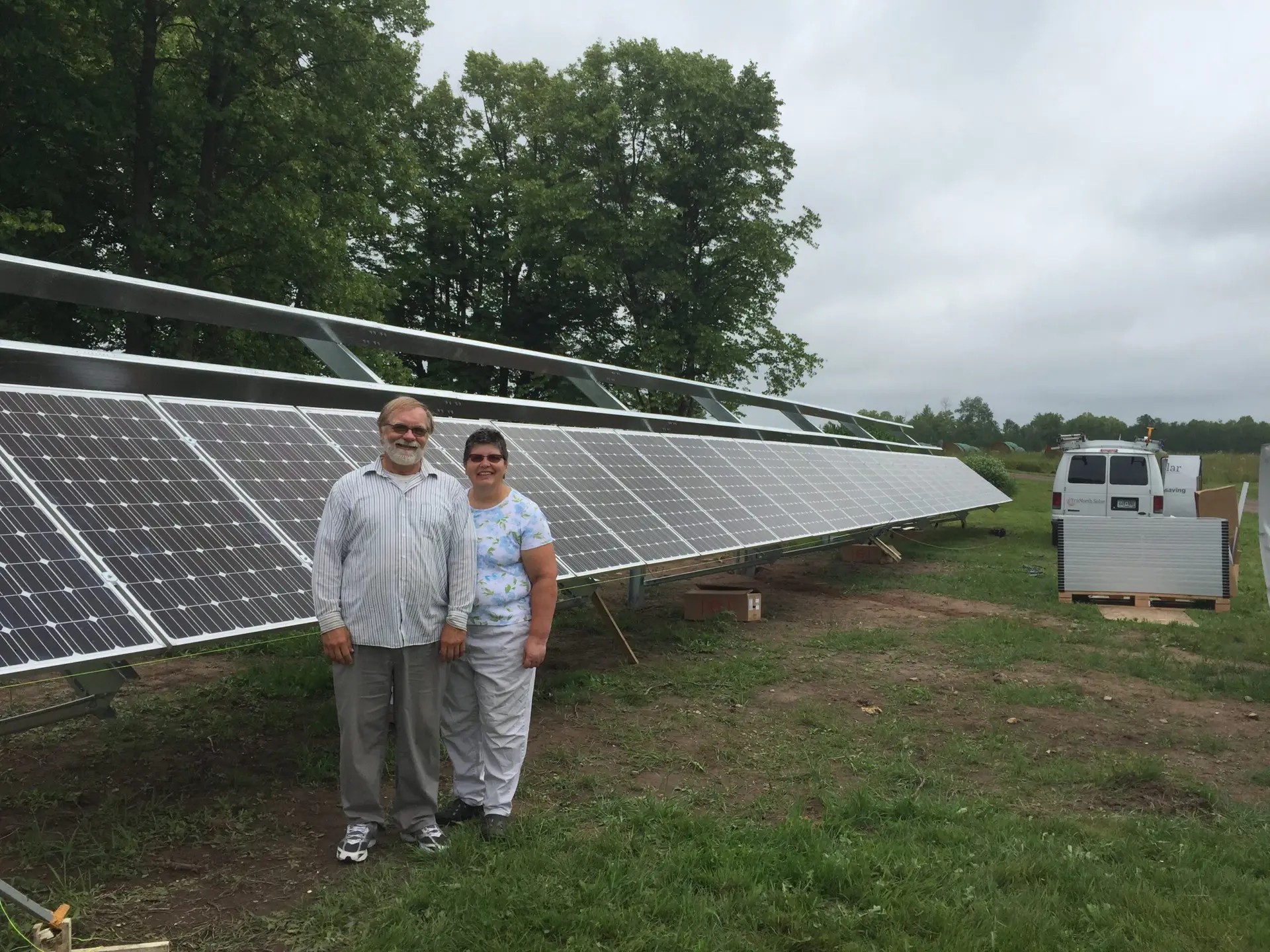[metaslider id=1410]
As we drove up to the Johnson farm near Hinckley, we were greeted by several large, exotic-looking speckled birds that glared at us reproachfully, and proceeded to trot away, shrieking loudly. Guinea fowl, who are native to Africa as we were told by Kathy Johnson, eat ticks. They’re helpful additions to the 192-acre farm. Their newest addition, however, is a 14 kW solar array installed by TruNorth Solar.
My colleague Donna Pickard and I had the opportunity to interview Larry and Kathy Johnson about the farm that enables them to be nearly self-sufficient, their stewardship of the land, and how solar energy fits into all of this.
Larry Johnson retired from being a pastor in 2007. He and his wife, Kathy, who still works as Christian educator, built their own house on this land and became farmers. Larry’s grandfather was a farmer, and his dream for many years was to follow in his grandfather’s footsteps.
With little to no farming background, the Johnsons have created quite the ambitious farming agenda. They have a flock of sheep, a couple of cattle for grassfed beef, laying hens, meat chickens, guinea fowl, 11 beehives with half a million bees, numerous fruit trees (including apples, pears, plums, apricots, and cherries), blueberry, raspberry, and blackberry bushes, and extensive vegetable gardens.
Wetlands run a long distance through the property; there are woods with maple trees for syrup tapping, fields for sheep and cows to graze, a plantation of white pine and spruce, and wildlife throughout. Trumpeter swans land in their wetland and songbirds abound. Pollinators like hummingbirds, mason bees, and bumblebees flock to the abundant fruit trees and gardens. They occasionally see black bears. It is truly an incredible place.
It is apparent that the Johnsons don’t simply live off their land – they live well. They rarely buy groceries from a store, yet they maintain an incredibly diverse selection of food. In order to maintain all of this abundance, they believe that proper stewardship of the land is not only a necessity, it is a no brainer. In accordance with their Christian faith, the Johnsons work to be good stewards of their land.
They don’t use any pesticides or chemicals on the property, to protect their land and water resources. They work to maintain and improve the integrity of the soil on their land with several different composting methods. They are also incorporating solar power into this vision.
Investing in a solar array reinforces the Johnson’s commitment to stewardship, and independence. Larry believes that the carbon footprint he has left in life has been too heavy, and wants to work to reduce it. This is easy with the new solar array – their new 14 kW of solar power will provide more than enough clean electricity for their home needs and the electrical needs around the farm, for at least 25 years. They are expecting to produce more electricity than they need and sell it back to the grid.
With this addition of solar the Johnsons can be totally independent, as they are with their food sources, and be truly committed to being good stewards of their land. They chose TruNorth Solar to install this project, because they knew that we would be committed to them as well. The Johnsons wanted to work with a local company, who knew what they were doing.
At TruNorth Solar, we have enough of a track record to let them know that we’ll be around well into the future to take care of their needs, whether that is maintenance of their array, or acting as a resource of information about solar energy. We have over 60 years of combined experience in the solar industry, and we used that experience to help the Johnsons create the best solar array for their needs. We were happy to help them achieve their greater visions for stewardship and independence.



